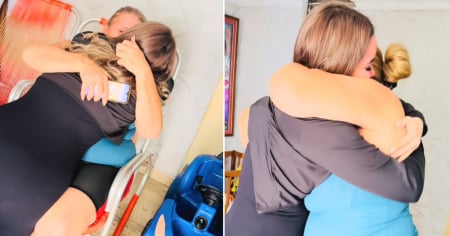When it comes to traveling to Cuba, suitcases often tell a story: Who manages to pack minimally to maximize weight for items for their family? Who prioritizes wearing expensive clothes and going out? These questions sparked an explosive outpouring from Lachiwow, a Cuban residing in the United States, who held nothing back in discussing the attitudes of some when returning to the Island.
"I’m only taking three pairs of shorts, three T-shirts, and three pairs of underwear. Everything else is merchandise for my family," he began saying in the video. But his frustration ran deeper: "You see people dressed up in coats and expensive clothes, strolling through Havana as if they were models. And I wonder: are they going to see their family or to speculate? Because I don’t even have space for my own clothes; it’s all for my loved ones."
Lachiwow, known on TikTok as @lachiwow, harshly criticized what he sees as a diversion from the main purpose of these trips: being with loved ones. "There are many who do little more than hang out at home. They spend their time buying drinks for everyone or hanging out with guys and girls just to show off as if they were someone important. Why don’t you do that here? Because in Cuba, you feel important; that's where you believe you are someone."
The video triggered a flood of comments from those who shared similar experiences, as well as some who disagreed. One user wrote: "I do the same, I take three pairs of leggings and three sweaters; the rest is for my family." Another added: "My suitcase looks like a market; I bring beans, peas, and candies. As for my clothes? I use my mom's when I'm there." Others highlighted the sacrifices they make to provide more for their loved ones: "I can't even fit my toothbrush; I leave everything for them"; "I travel with just two outfits and wash the same clothes every day"; and "Every time I go, I leave all my clothes there so I won’t have to carry them back next time."
However, there were criticisms of Lachiwow's stance. "Those who can, can. If someone wants to take a trip or enjoy themselves, let them. Everyone travels how they choose," commented a follower. Another person wrote, "I take what I need for myself and my family too. There's room for both."
Despite differing opinions, many agreed that family remains the most important thing. "Tell me what you speculate about, and I'll tell you what you're lacking," wrote one person, summarizing the sentiments of several followers. Another added, "Those who speculate the most are the ones who have the worst situation with their family over there. The priority should be clear."
Frequently Asked Questions about Cuban Travel to Cuba and Sending Aid
Why do some Cubans in the U.S. criticize those who travel to Cuba to "speculate"?
Some Cubans criticize those who travel to Cuba to "speculate" because they believe it detracts from the main purpose of the trip, which is to visit family and offer support. The criticism is directed at those who prioritize showcasing luxury and personal enjoyment over the well-being of their loved ones on the island. This behavior is viewed as a way to seek status and recognition without considering the needs of their families.
What do Cubans in the U.S. think about the expectations for financial support from their relatives in Cuba?
Many Cubans in the U.S. feel a constant pressure to provide financial support, which can lead to frustration and stress. Some believe that their family members have unrealistic expectations and do not take into account the challenges they face abroad. This situation often results in family tensions, as emigrants are seen as an inexhaustible source of resources, without appreciation for the effort and sacrifice that it entails.
Why do Cubans abroad feel the need to send packages to their families in Cuba?
Cubans abroad feel the need to send packages to their families in Cuba to ensure they have access to basic necessities amid the shortages on the island. Despite facing criticism, they prioritize the well-being of their loved ones and seek to alleviate the economic hardships they encounter in Cuba. This reflects an emotional commitment and a way to support family from afar.
Filed under:
